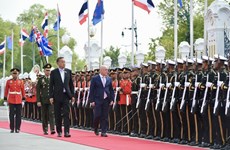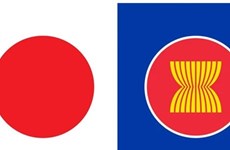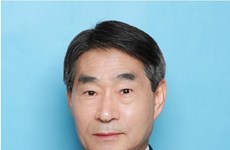Financial crisis tops agenda at 15th NAM summit
The 15th Non-Aligned Movement (NAM)
Summit opened in Sharm El Sheikh, Egypt, on July 15.
The 15th Non-Aligned Movement (NAM)
Summit opened in Sharm El Sheikh, Egypt , on July 15 to seek more
solidarity among developing countries to tackle major international and
regional issues, including the ongoing world financial crisis.
At the two-day summit, heads of state or government from more than 100 NAM member countries will focus their discussions on a series of hot-button issues, such as the global financial crisis, climate change, the Middle East peace process, food security, energy and nuclear power.
The leaders are also scheduled to sign the summit's final document and the “Sharm El Sheikh Declaration”, as well as approve the movement's strategy and action plan for the next three years.
In his opening speech, Cuban President Raul Castro, chairperson of the 14th NAM summit, stressed that all countries in the world should search for effective and justified measures to tackle the current global economic-financial crisis.
He called for the establishment of a new international financial order of equality and sustainable development, involving the active participation of developing nations.
Within the framework of the summit, themed “International Solidarity for Peace and Development,” Egyptian President Hosni Mubarak was elected chairman of NAM for a three-year term. He then took over the NAM chairmanship from Cuban President Raul Castro.
President Mubarak appealed for the construction of a new international political, economic and trade system, which is more balanced and equitable.
Sources from the earlier preparatory NAM Foreign Ministerial and Senior Officials Meeting said the draft “Sharm El Sheikh Declaration” will call on NAM to work with China , an observer at this year’s summit, to enhance the voice of developing and rising nations in the International Monetary Fund (IMF) and the World Bank (WB).
Founded in September 1961, NAM now groups 118 member states, 16 observer countries and nine observer organisations.
The movement, which represents nearly two-thirds of UN member countries and comprises 55 percent of the world population, focuses on striving to advance the interests of developing countries all over the world./.
At the two-day summit, heads of state or government from more than 100 NAM member countries will focus their discussions on a series of hot-button issues, such as the global financial crisis, climate change, the Middle East peace process, food security, energy and nuclear power.
The leaders are also scheduled to sign the summit's final document and the “Sharm El Sheikh Declaration”, as well as approve the movement's strategy and action plan for the next three years.
In his opening speech, Cuban President Raul Castro, chairperson of the 14th NAM summit, stressed that all countries in the world should search for effective and justified measures to tackle the current global economic-financial crisis.
He called for the establishment of a new international financial order of equality and sustainable development, involving the active participation of developing nations.
Within the framework of the summit, themed “International Solidarity for Peace and Development,” Egyptian President Hosni Mubarak was elected chairman of NAM for a three-year term. He then took over the NAM chairmanship from Cuban President Raul Castro.
President Mubarak appealed for the construction of a new international political, economic and trade system, which is more balanced and equitable.
Sources from the earlier preparatory NAM Foreign Ministerial and Senior Officials Meeting said the draft “Sharm El Sheikh Declaration” will call on NAM to work with China , an observer at this year’s summit, to enhance the voice of developing and rising nations in the International Monetary Fund (IMF) and the World Bank (WB).
Founded in September 1961, NAM now groups 118 member states, 16 observer countries and nine observer organisations.
The movement, which represents nearly two-thirds of UN member countries and comprises 55 percent of the world population, focuses on striving to advance the interests of developing countries all over the world./.












